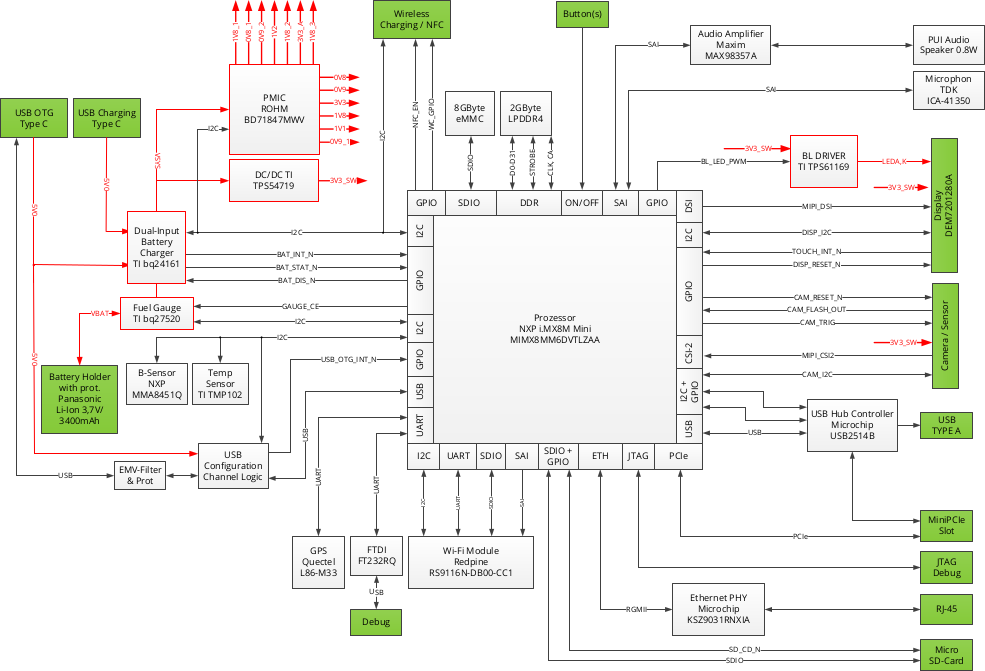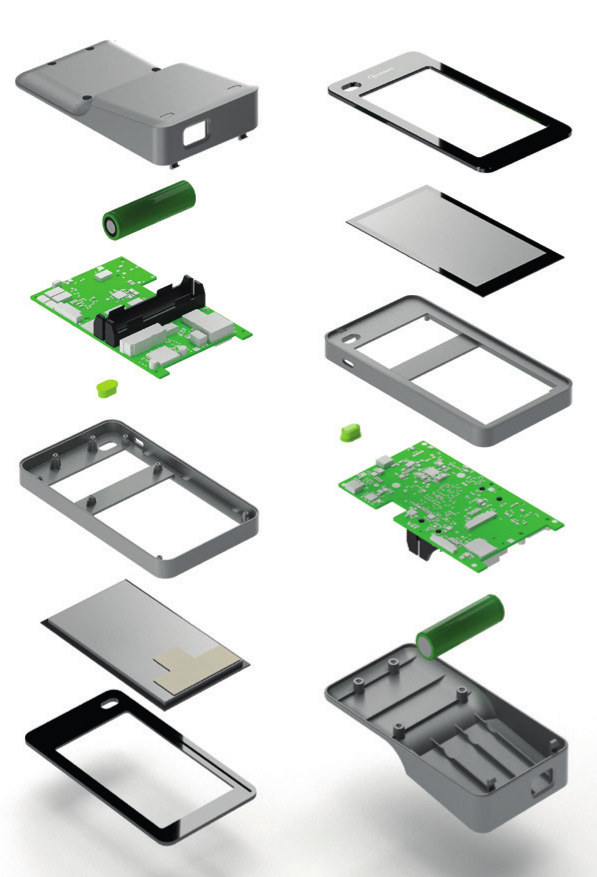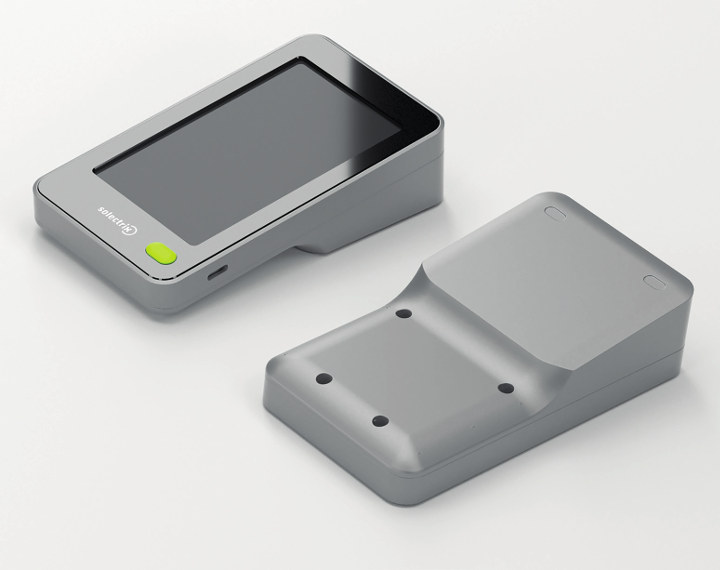In the last two years or so, we’ve seen the development of Linux phones that are expected to launch in the next few months with products such as PinePhone, Purism Librem 5, or even Necunos NC_1.
Solectrix SX Mobile Device Kit also targets Arm-based mobile devices, but it is somewhat different, as the i.MX8M Mini development kit aims to help with the design of Android or Linux mobile devices with software, hardware and housing available, but more geared towards specific business use cases, as it comes with optional Gigabit Ethernet and USB-to-UART ports, and no cellular connectivity.
Solectrix SX Mobile Device Kit (MDK) specifications:
- SoC – NXP i.MX8M Mini single to quad-core Cortex-A53 processor clocked at up to 2.0GHz, Arm Cortex-M4F @ 400MHz, and 2D / 3D GPU (OpenGL ES 2.0)
- System Memory – 2GB LPDDR4
- Storage – 8GB eMMC Flash, microSD card slot
- Display – 4-lane MIPI DSI; capacitive touch interface, ready for DEM 7201280A 5″ TFT display module with 720×1280 resolution
- Audio – Maxim MAX98357A PCM Class D amplifier; 0.7W magnetic speaker, PDM microphone
- Connectivity
- Optional Gigabit Ethernet
- Redpine RS9116 module
- 802.11 a/b/g/n (2.4 GHz and 5 GHz), 802.11j WiFi 4
- Dual-mode Bluetooth 5 (“Bluetooth Classic and BLE”)
- Location – Quectel L86 Compact GNSS Module (GPS, GLONASS, and QZSS)
- Camera – 4-lane MIPI CSI-2 with power supply for sensor extension boards, I2C interface for sensor configuration, and GPIO signals for flash/illumination control
- USB – 2x USB Type-C (1x charging only / 1x USB OTG), optional USB type-A port
- Expansion – mini PCIe socket
- Misc – FT232 USB-to-UART
- Power Supply
- 5V via USB Type-C
- 18650 Li-Ion battery holder
- TI bq24161 charger on-board
- TI bq27520 Fuel Gauge on-board
- Wireless Charging extension connector
- Dimensions – 125mm x 78mm (PCB)

The company provides Android 9 “Pie”, a Yocto Linux BSP, and a Debian Linux BSP for the kit. Customers can opt to build a mobile device based on the MDK PCBA itself, or modify the MDK to meet their specific requirements.
Pricing has not been disclosed, and details on the product page are limited, but it appears to be available now, and the company invites interested parties to request a quote for the kit.


Jean-Luc started CNX Software in 2010 as a part-time endeavor, before quitting his job as a software engineering manager, and starting to write daily news, and reviews full time later in 2011.
Support CNX Software! Donate via cryptocurrencies, become a Patron on Patreon, or purchase goods on Amazon or Aliexpress





